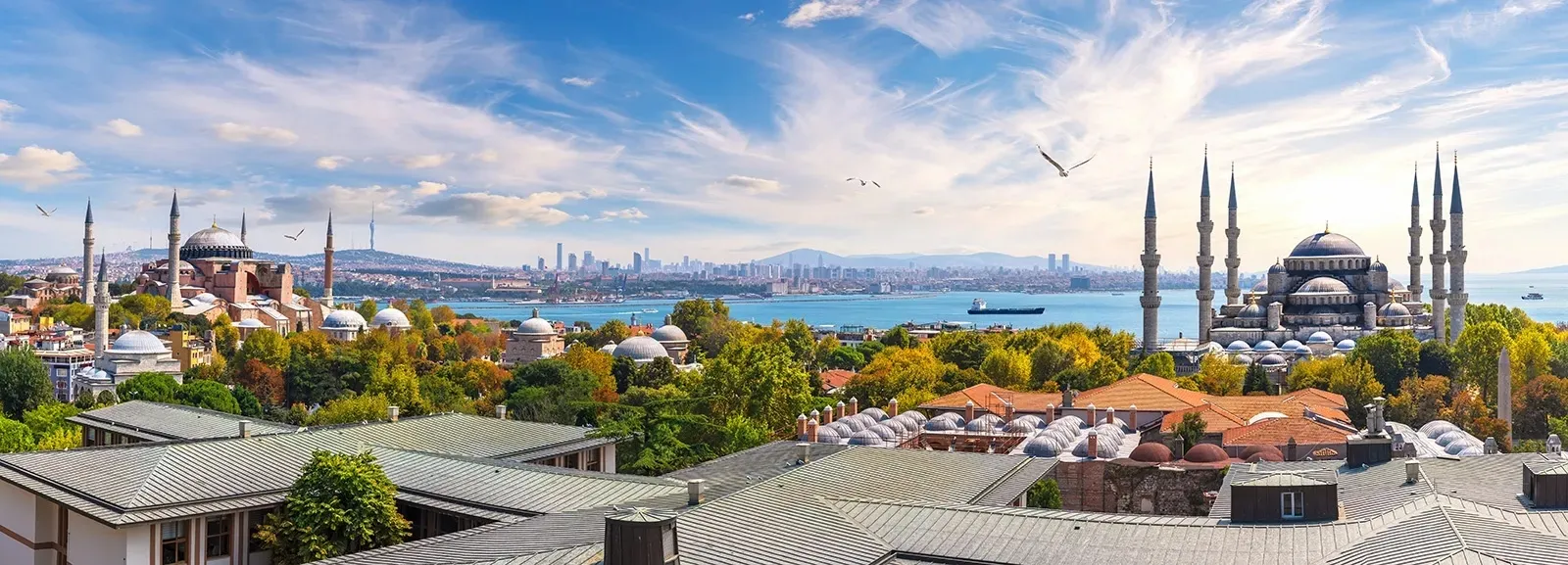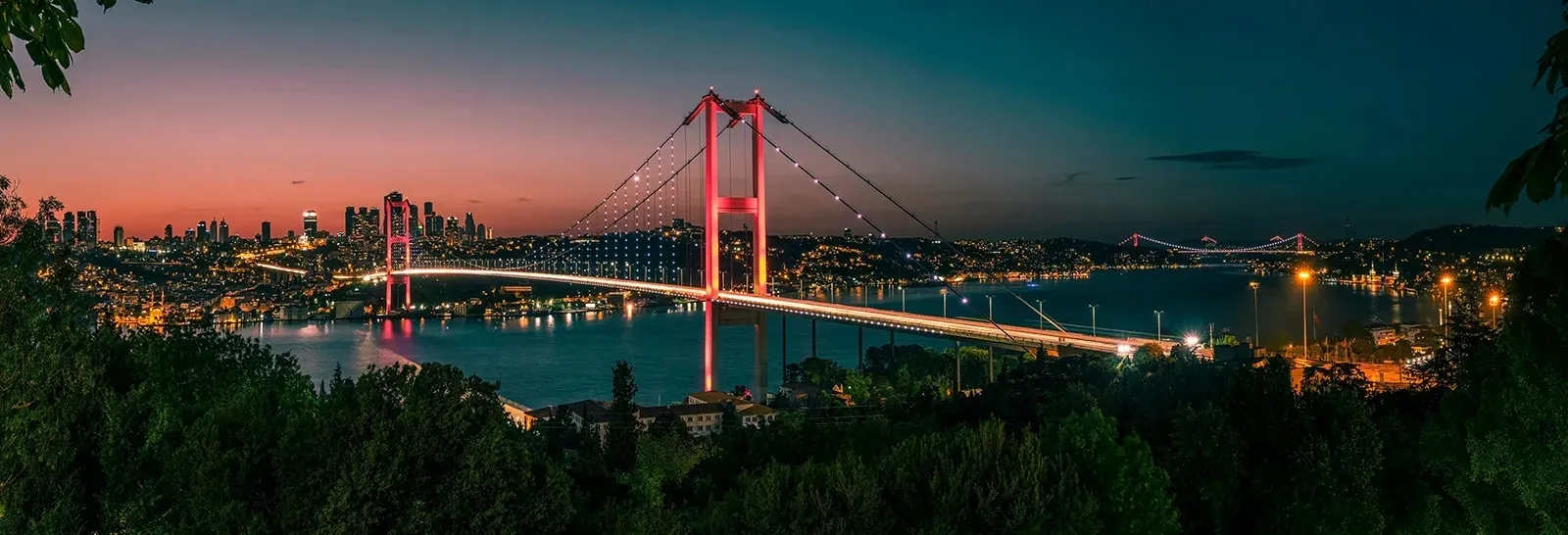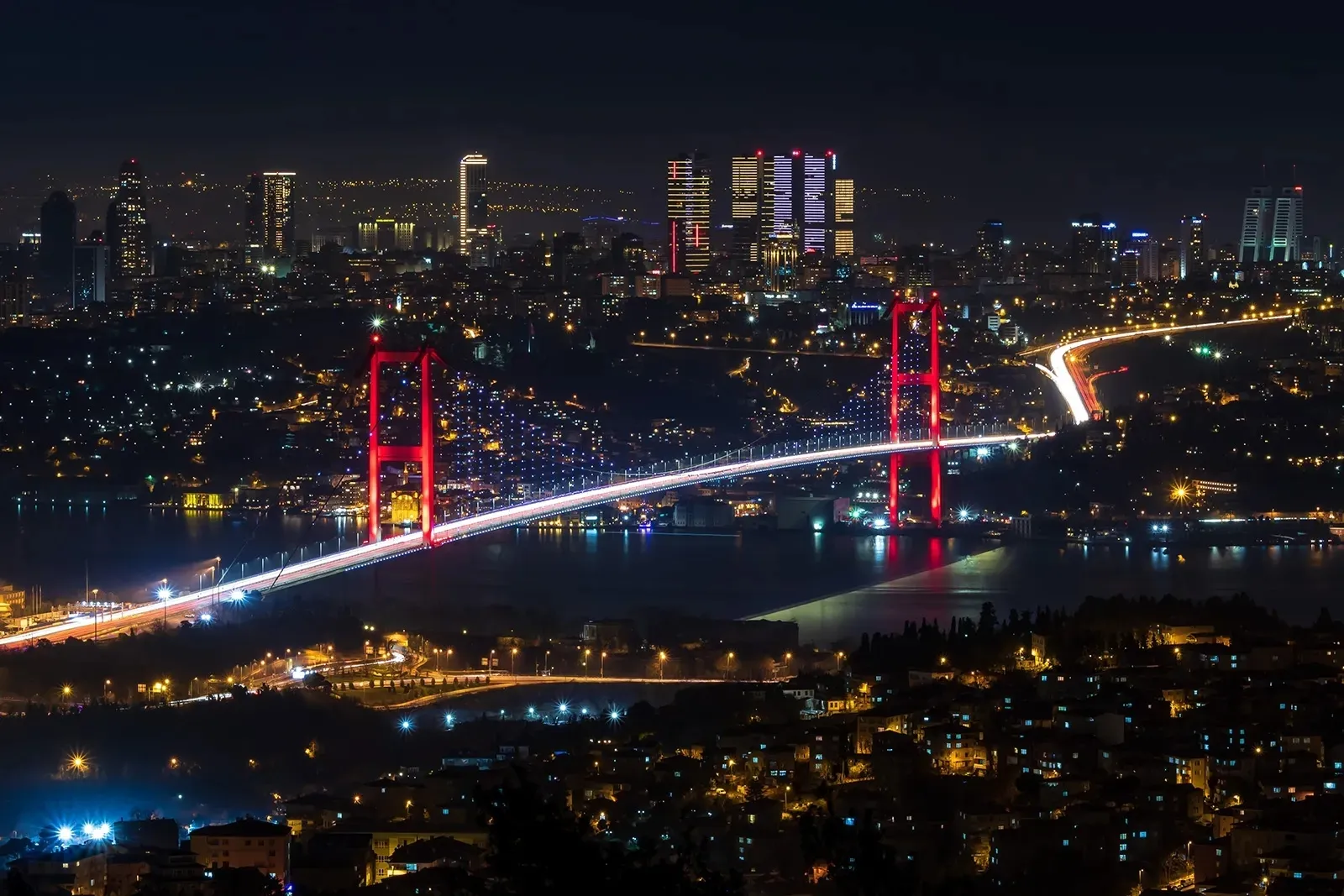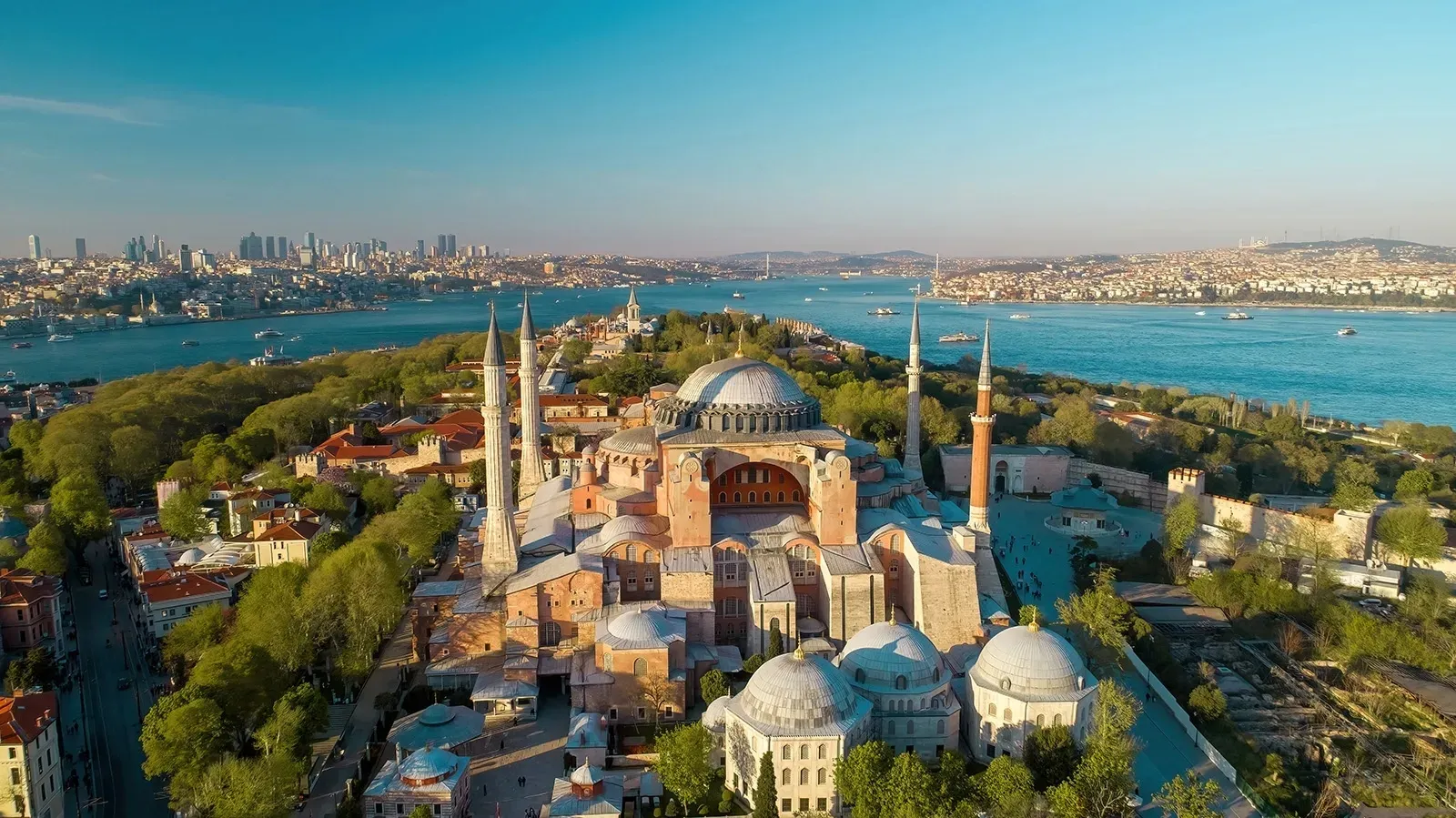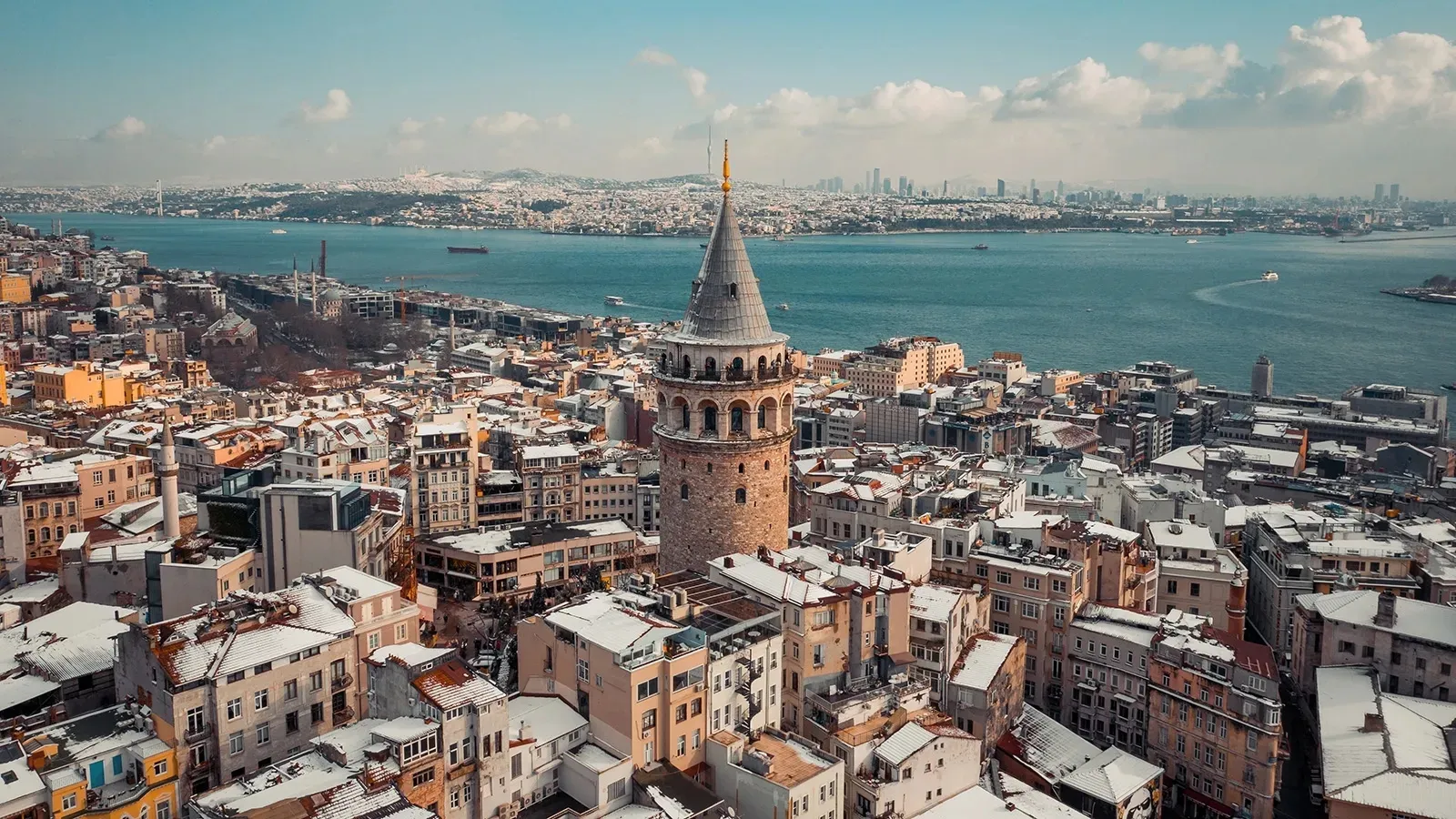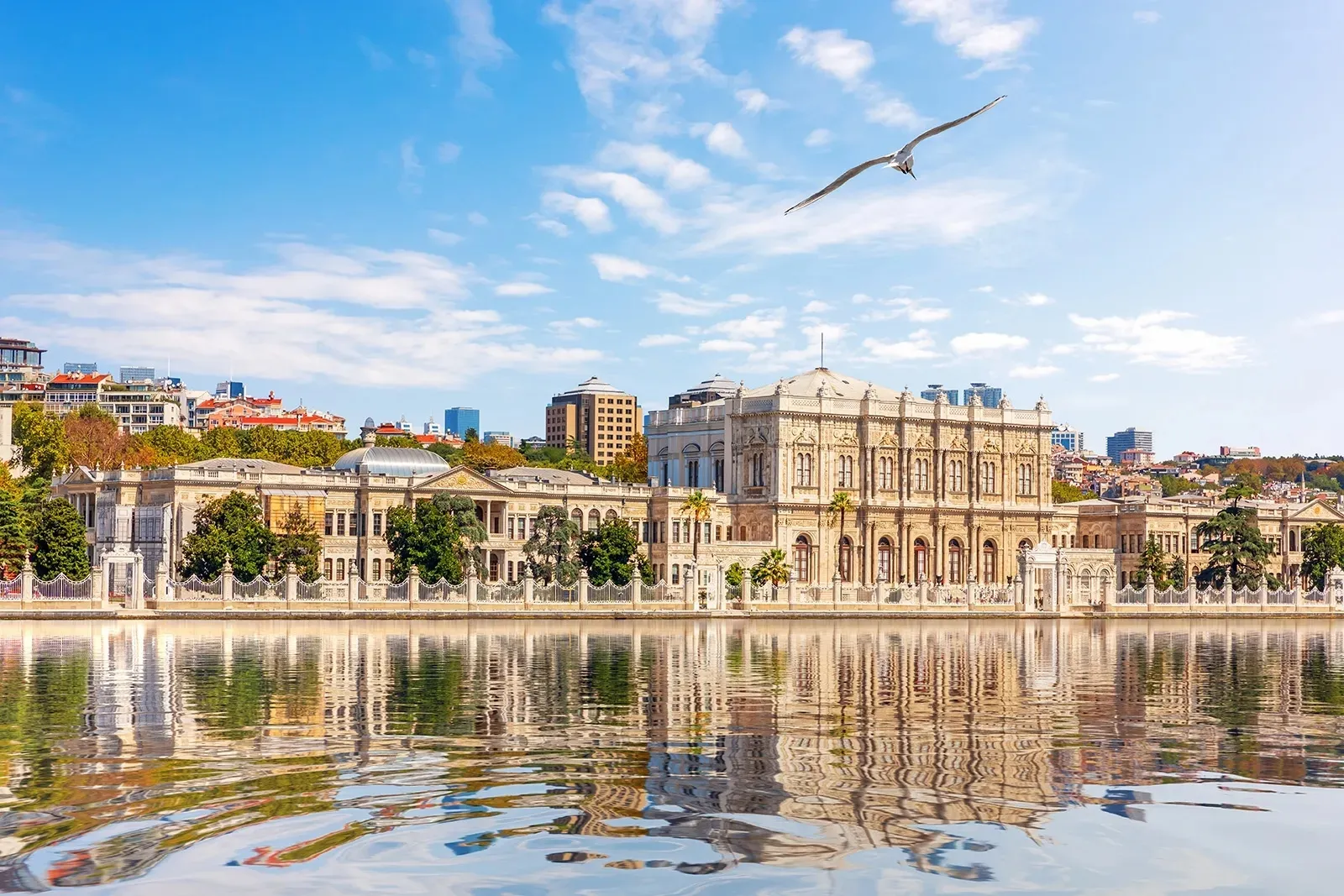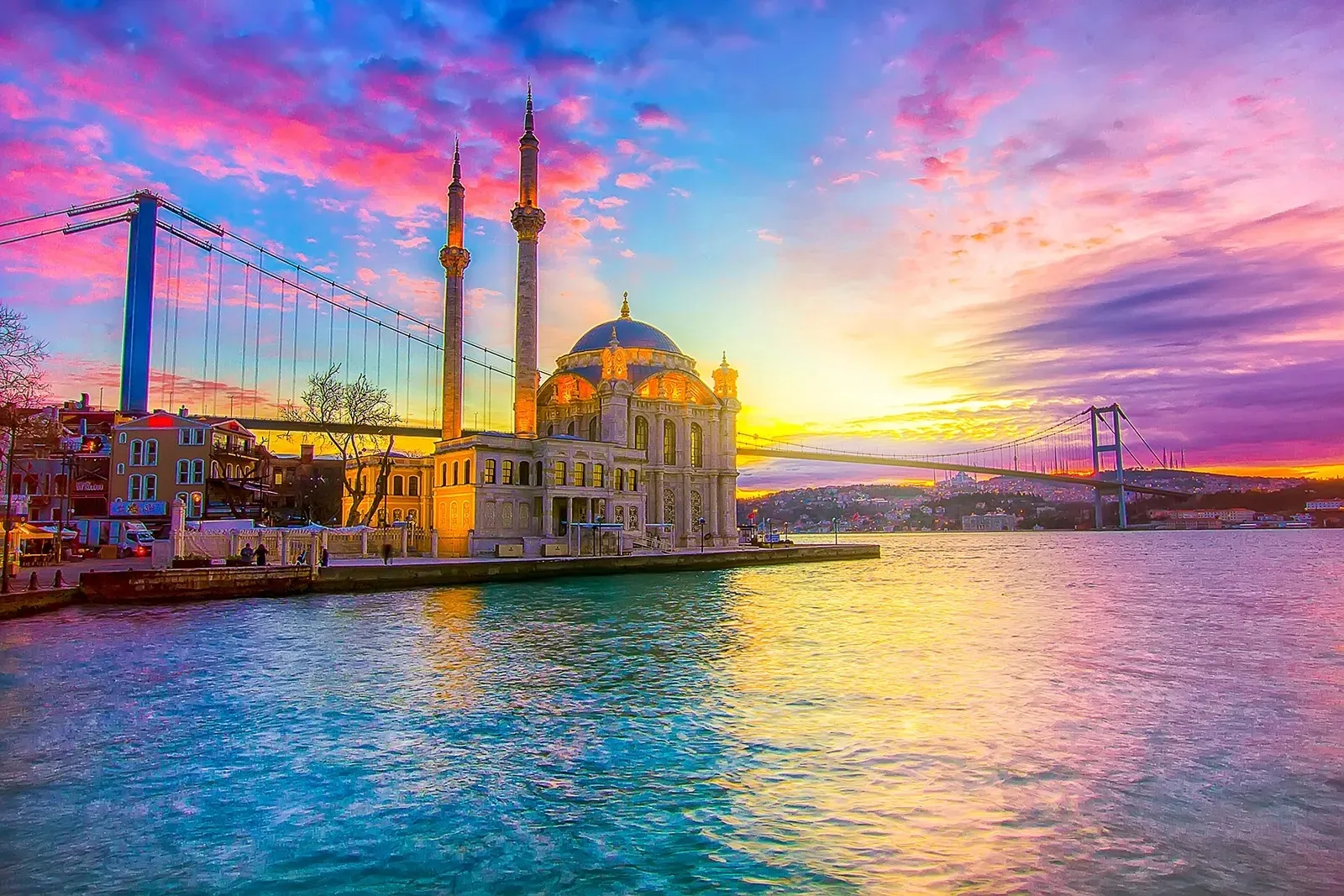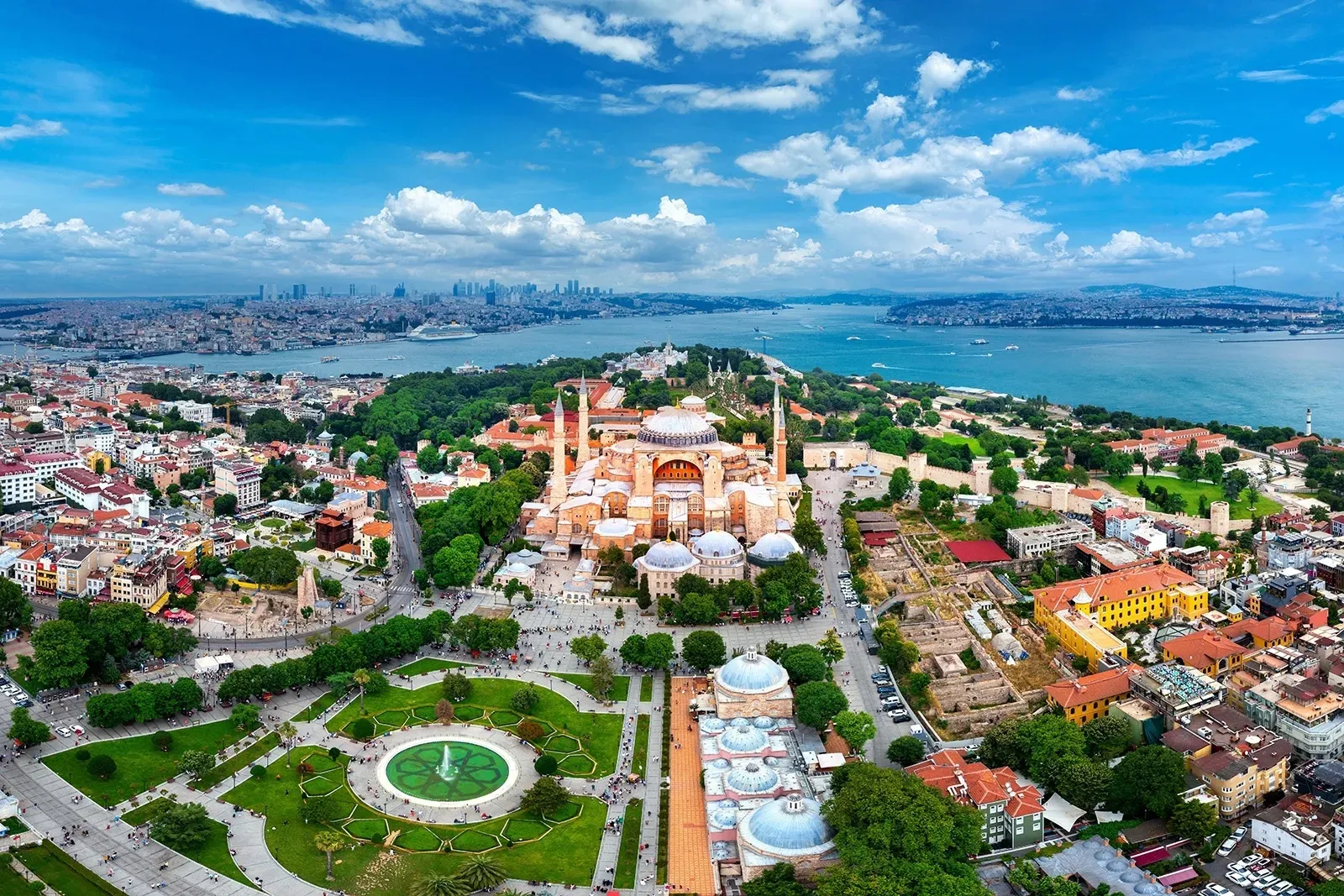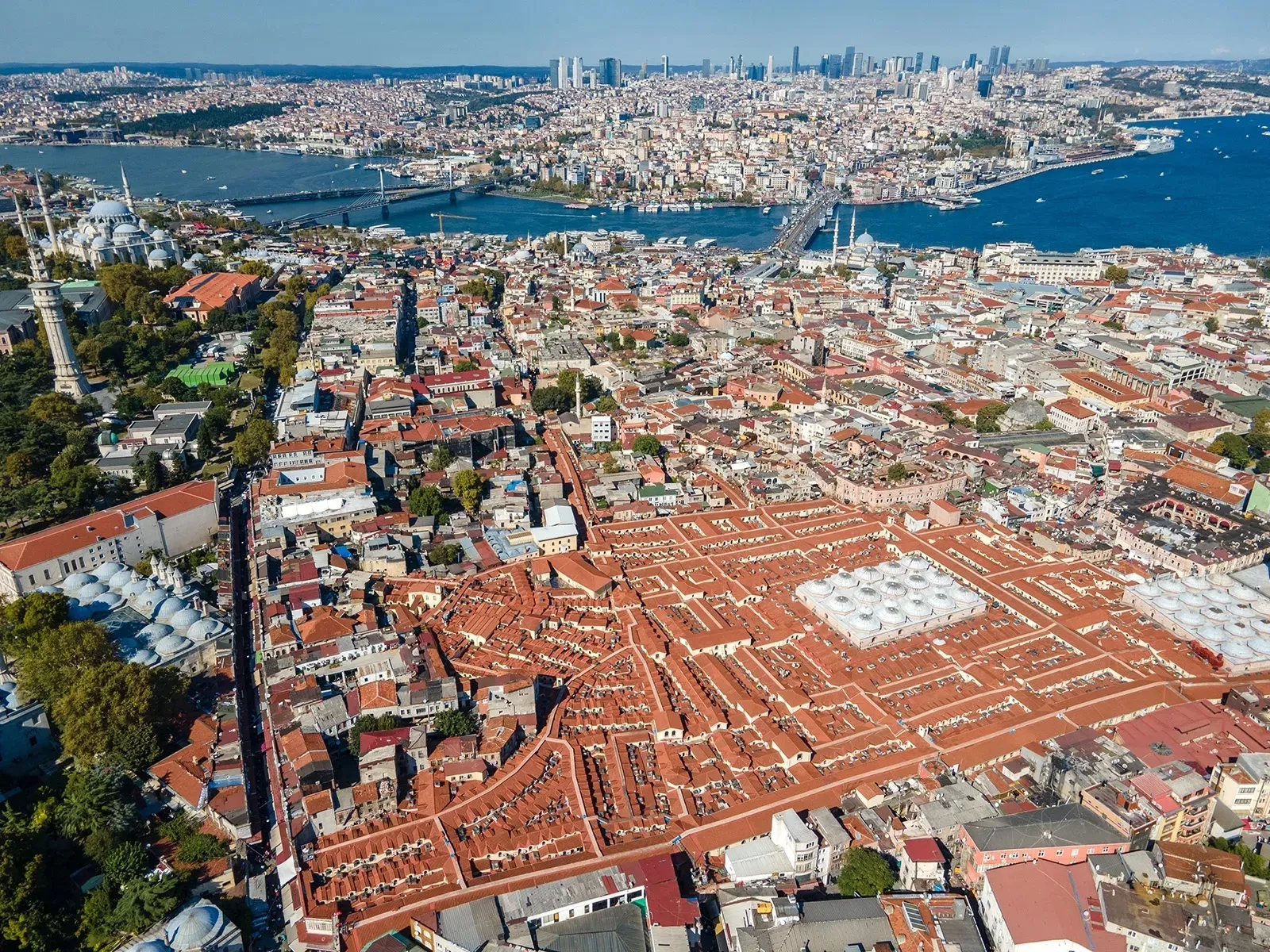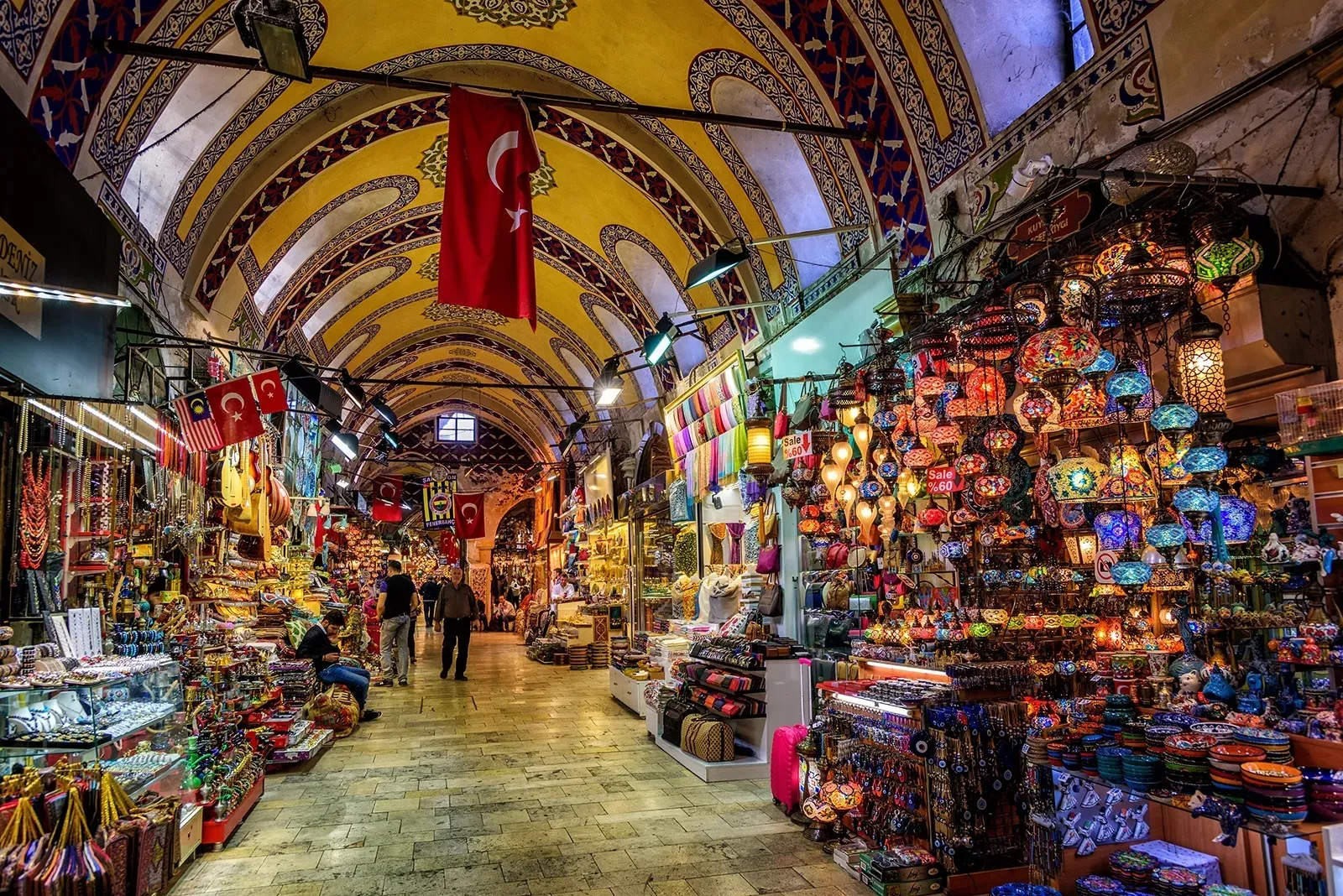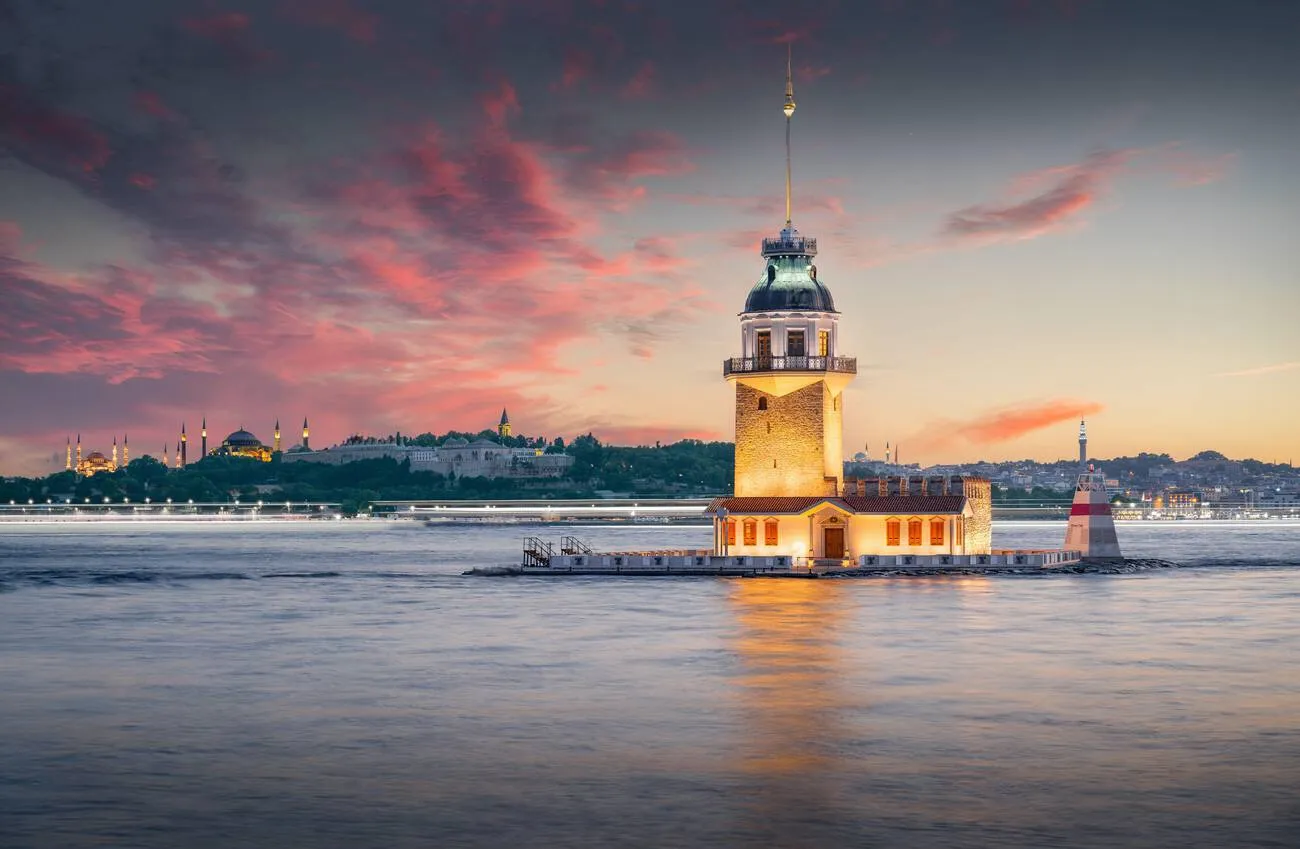Istanbul
Capital of the three great empires
Istanbul, the city that bridges two continents, stands as a unique testament to the richness of history, culture, and modernity. Straddling the Bosporus Strait, it is the only city in the world to span both Europe and Asia, making it a significant cultural and geographical landmark. As a hub of diverse influences and historical epochs, Istanbul offers an unparalleled tourism experience that captivates millions of visitors annually.
The city's history spans millennia, having served as the capital of three great empires: the Roman, Byzantine, and Ottoman. This legacy is etched into the very fabric of Istanbul, with each era leaving behind iconic structures that tell tales of bygone days. This geographical advantage made the city a critical node in the Silk Road network, which facilitated trade and cultural exchanges between Asia, the Middle East, and Europe for over a millennium.
Istanbul's position at the crossroads of Europe and Asia has imbued it with a rich cultural mosaic. This confluence is evident in the city’s cuisine, music, and art. The Grand Bazaar, one of the oldest and largest covered markets in the world, is a microcosm of this diversity. Here, visitors can find everything from traditional Turkish carpets and lanterns to spices and jewelry, all amidst a lively atmosphere that has been a part of Istanbul’s daily life for centuries.
The city’s culinary scene is another reflection of its cultural amalgamation. From savoring street food like simit (a sesame-crusted bread) and balik ekmek (fish sandwich) by the Galata Bridge to dining in sophisticated restaurants that offer modern twists on Ottoman cuisine, Istanbul’s food scene is a journey in itself. Dishes like kebabs, mezes, and baklava are celebrated both locally and internationally, providing a sensory delight for food enthusiasts.
Despite its deep historical roots, Istanbul is also a bustling modern metropolis. The Taksim Square and Istiklal Avenue are epicenters of contemporary life, bustling with shops, cafes, and nightlife. The contrast between the old and the new is stark yet harmonious, with ancient landmarks often sitting comfortably beside modern developments.
The natural beauty of Istanbul is another facet that enhances its tourism appeal. The Bosporus Strait itself offers breathtaking views and numerous opportunities for boat tours. These cruises provide a unique perspective of the city’s skyline, where minarets and skyscrapers coexist. Additionally, the Princes' Islands, a short ferry ride from the city, offer a tranquil escape from the urban hustle. Visitors can enjoy horse-drawn carriage rides, bicycle tours, and leisurely strolls through pine-scented lanes.
Istanbul has been a crucial nexus of trade, culture, and power for centuries. Its role on the historic Silk Road further underscores its importance as a city where East meets West.
Istanbul’s position on the Silk Road made it a melting pot of cultures, religions, and ideas. The city attracted people from all over the world, including traders, scholars, artists, and religious figures. This cultural diversity is evident in many aspects of Istanbul’s heritage, from its architecture to its culinary traditions.
The wealth and cultural exchanges facilitated by the Silk Road significantly influenced Istanbul’s architectural heritage. The city is dotted with magnificent buildings that reflect its historical significance and the diverse influences that have shaped it.
Istanbul’s allure lies in its unique ability to offer a journey through time and across cultures. Its historical monuments, cultural richness, modern vibrancy, and natural beauty combine to create a multidimensional tourism experience.
Furthermore, as a connection hub to the globe, Istanbul hosted almost 17.5 million tourists and became the world's most-visited city in 2023.

